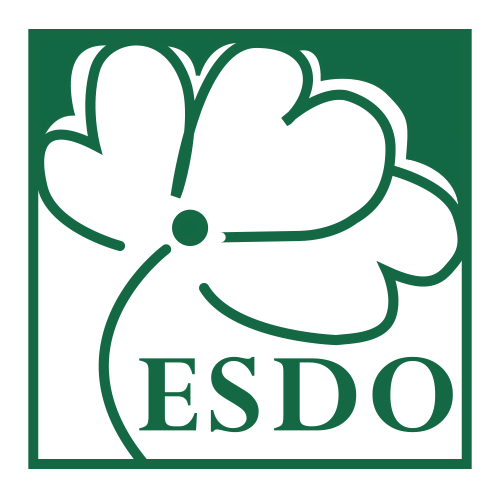
Dhaka 19, February, 2018: A huge gathering of health and environmental experts, government representatives, stakeholders, academicians, and mass people encouraged the ban of microplastic, especially microbeads in a ‘Knowledge Sharing Consultation with Stakeholders on Microplastic Pollution in the Bay of Bengal’ to make people, especially the stakeholders aware about the emerging pollution threat from microbeads. The event was organized by Environment and Social development Organization-ESDO at Four Seasons Restaurant, Sat Masjid Road, Dhanmondi, Dhaka.
Syed Marghub Murshed, Former Secretary, Government of the People’s Republic of Bangladesh and Chairperson of ESDO presided over the event. Md. Billal Hossain, Additional Secretary, Ministry of Environment and Forests and Khondoker Mostafizur Rahman, Additional Secretary (R&D), Ministry of Industries were the special guests of the event. Dr. Mahmood Hasan Khan, former director, Department of Environment and Dr. Abul Hashem Khan, Chairman (Chemical Division), Bangladesh Standard and Testing Institute-BSTI presided the panel. Secretary General of ESDO, Dr. Shahriar hossain moderated the event. Among others, government representatives from Ministry of Fisheries and Livestock, DoE, and directorate general of health services, Bangladesh Plastic Goods Manufacturers and Exporters Association (BPGMEA) were present in the event.
For the very first time, stakeholders of plastic products, microplastics and microbeads came into one common platform to share their views and opinions about microplastic pollution. The key point of discussion was how to eliminate microbeads, thus minimizing the global microplastic debris.
A video documentary was shown in the event followed by a power point presentation showing the study findings and survey results of ESDO on the current situation of the use of microbeads as well as the level of awareness among consumers and retailers in Bangladesh. It was very unfortunate that among 200 retailers surveyed, only a percent had idea about microplastic or microbeads.
Microplastics is used as a collective form to describe particles measuring less than 5 mm. Microplastics can be categorized into two types : those which are generated from larger plastic particles as a result of fragmentation and those which are generated intentionally as microbeads. Whatever the sources are, at present microplastics pollution is of increasing concern throughout the world.
Md. Billal Hossain appreciated ESDO’s initiative as it is the first organization in Bangladesh who has taken such an initiative to address the pollution from microbeads in Bangladesh. He said, “globally anti-plastic campaign has started in a wide magnitude whreas Bangladesh has not made such progress so far. It is high time to sort out the microplastic added products and to move forward with the solution thereby.”
Khondoker Mostafizur Rahman said, “though microplastic pollution is a global problem we should first think from Bangladesh perspective. As Bay of Bengal is the most significant asset of Bangladesh, we should work together to protect it from plastic trashes. To reduce microplastic trashes in ocean and land the complete elimination of microbeads from personnal care products is inevitable.”
Dr. Shahriar said, “The British government has banned the production of microbeads in rinse-off cosmetics and cleaning products in England. The ban on production took effect on 9 January 2018 and will be followed by a sales ban on 1 July 2018. Bangladesh is not the producer of microbeads rather importer. So it would be easy for Bangladeshi Government to call a ban on microbeads in personal care products“.
In response to question from a journalist, Syed Murshed said, there is no evidence of microbead’s usefulness, rather it is a serious health and environment polluting agent. He said that we need to address this issue with high priority to protect our ecosystem, wildlife and human health.
Experts in the meeting said, Mirobeads are plastic particles less than 1mm in size that can be spherical or irregular in shape and produced in a multitude of colors. Sewage treatment plants are not equipped to remove particles that are small. Fish can confuse them as eggs or zooplankton and accidentally ingest them, which ultimately end up in human bodies. Microbeads being small in size have a large surface area by volume. As a result, they accumulate toxic contaminants. Consumption of these toxic chemicals may cause liver toxicity and disrupt the endocrine system. Microbeads in beauty products and toothpaste can be harmful to skin and teeth accordingly. Fish species that humans harvest for food have been known to eat micro-plastic particles at an alarming rate and the toxins absorbed in those plastics transfer to the fish tissue.
ESDO urged the government of Bangladesh and the people to come forward and raise the voice to “ban microbeads”. They stressed for mass public awareness, immediate ban of microbeads containing products, stop production, sale and import of microbeads containing products and legislation to ban the use of microplastic and microbeads in Bangladesh.
At the end of the event, all the invited experts, academicians, beauticians, concerned stakeholders and consumers expressed their willingness to support ESDO’s initiatives in addressing the microplastic pollution and thus ensuring a toxic free environment.
For More information,
Dr. Shahriar Hossain
Phone: 01711545066
Email: shahriar25@gmail.com
Afrida Nazibah
Phone: 01557019412

